Republicans Who Really Don’t Like Donald Trump
Tuesday, March 22, 2016
Much to the chagrin of many establishment Republicans and conservative leaders, Donald Trump’s recent string of primary wins make him the front-runner for the GOP presidential nomination. The businessman-turned-reality-star has tapped into a potent and palpable frustration with Washington politics, meaning Trump’s supporters dig what he says as much as how he says it.
Despite his popularity with voters, a decent contingent of Republicans has come out strongly against Trump, whether it’s for being too liberal on social issues or too divisive with his language. Some in the GOP hope Trump won’t be able to collect the full tally of required delegates, drawing out the nomination process with a contested convention. Other conservatives are reportedly hatching a plan for a third-party run in November should Trump secure the nomination.
With the Republican Party divided over its presidential front-runner, InsideGov set out to learn about some of the conservatives who despise Trump. We hunted around to find 25 GOPers who aren’t Trump’s biggest fans, ranking the list alphabetically by last name.
GET THE LATEST BREAKING NEWS HERE -- SIGN UP FOR GOLOCAL FREE DAILY EBLAST#25. Charlie Baker
Who: Massachusetts Governor
What: The day after Trump won the Republican primary in Massachusetts, that state’s sitting governor said he didn’t vote for Trump in the primary and wouldn’t vote for Trump in November.
#24. Glenn Beck
Praying for this great country. Praying for a true constitutionalist! God bless ����#NeverTrump #CruzCrew @tedcruz pic.twitter.com/09WEG2No3S
— Glenn Beck (@glennbeck) February 28, 2016
Who: Syndicated Conservative Radio Host, Founder of Conservative News Site TheBlaze
What: As part of a group of conservatives who wrote an anti-Trump piece in the National Review, Beck argued that Trump’s candidacy presented a “crisis for conservatism.” Beck’s presidential candidate of choice is Texas Sen. Ted Cruz.
#23. Eliot Cohen
Open letter from Republican foreign & national security policy leaders on Trump, organized by me and Bryan McGrath. https://t.co/ElZqycjNSV
— Eliot A Cohen (@cohen_eliot) March 3, 2016
Who: Former Counselor of the State Department During President George W. Bush’s Second Term
What: A professor at Johns Hopkins University’s School of Advanced International Studies, Cohen is a well-known hawk within the GOP. He turned to Twitter to give his “short list” of reasons why he wouldn’t vote for Trump: “demagoguery, torture, bigotry, misogyny, isolationism, violence. Not the Party of Lincoln & not me.” Cohen described Democrat Hillary Clinton as “the lesser evil, by a large margin” when compared to Trump; Cohen also said he would “prefer a third-party candidate” but would vote for Clinton if there was no alternative in the general election.
In early March, Cohen dove into his Rolodex and got more than 100 Republicans, many with foreign policy expertise, to sign an open letter opposing Trump. “We have disagreed with one another on many issues, including the Iraq war and intervention in Syria. But we are united in our opposition to a Donald Trump presidency,” the letter reads.
#22. Norm Coleman
Who: Former Minnesota Senator
What: In a scathing commentary piece for the Minneapolis Star Tribune, Coleman said he would not vote for Trump “because of who he isn’t” — a conservative, a uniter. He went on to say that he also wouldn’t vote for Trump “because of who he is” — “A bigot. A misogynist. A fraud. A bully.” The critique continues throughout the story, published on March 3, and ends by turning a few Trump-isms on their head. “America is a great nation. We were a great nation long before Donald Trump sold us on a slogan — and we can be a great nation without Trump's false promises built on a legacy of fiction. Keep America great. Fire Donald Trump,” Coleman concludes.
#21. Carlos Curbelo
Who: Florida Representative
What: Last summer, Curbelo posited Trump was a Democratic plant, sent in to hurt the GOP. Fast-forward to March 2016, after a string of primary wins for Trump. Curbelo told an NPR affiliate he won’t support Trump in the general election and will go for a third-party candidate instead.
#20. Erick Erickson

Who: Conservative Blogger and Radio Host, Former Editor-in-Chief of Conservative News Site RedState
What: On his new conservative website, The Resurgent, Erickson wrote a post titled, “I Will Not Vote for Donald Trump. Ever.” The piece argued Trump’s new anti-abortion stance is “a conversion of convenience.” Erickson is reportedly part of a small group of conservatives in the early stages of strategizing for a third-party candidate come November, should Trump secure the nomination.
#19. Jeff Flake
Who: Arizona Senator
What: A longtime politician from Arizona, Flake has called Trump’s rhetoric “offensive to simply laughable” and his immigration proposals “not a serious plan.” Flake also called out Trump on Twitter, saying: “C'mon, @realDonaldTrump. First a ‘Total and complete Muslim ban.’ Now ‘Islam hates us.’ Republicans are better than this.”
#18. Lindsey Graham
Who: South Carolina Senator, Former 2016 Republican Presidential Candidate
What: After a six-month stint in this cycle’s nomination race, Graham dropped out and endorsed former Florida Gov. Jeb Bush. In February, Graham said of Trump: “I would do everything I can to make sure you’re never their commander in chief, ’cause you’re not worthy of the title.” And after Trump logged a series of primary wins on Super Tuesday, Graham said that if the businessman became the Republican nominee, it would “tear the party apart, it will divide conservatism, and we’re gonna lose to Hillary Clinton. … So here's what I'm going to say in November when we lose: I told you so.”
Graham, who likened the choice between Trump and Texas Sen. Ted Cruz to “being shot or poisoned,” is slated to attend a fundraiser on March 21 for the Texan’s presidential campaign. In announcing his attendance, Graham described Cruz as “the best alternative to Donald Trump.”
#17. Michael Hayden

Who: Former CIA Director, Former National Security Agency Director
What: On the heels of Trump’s assertion that “torture works” when interrogating terrorists, Hayden said he “would be incredibly concerned if a President Trump governed in a way that was consistent with the language that candidate Trump expressed during the campaign.”
Trump has also suggested the U.S. kill family members of terrorists. Hayden said that if Trump ordered that as president, “the American armed forces would refuse to act. … You are required not to follow an unlawful order. That would be in violation of all the international laws of armed conflict.”
#16. Doug Heye

Who: Former Deputy Chief of Staff for Communications for House Majority Leader Eric Cantor, Former Communications Director of Republican National Committee
What: A recent fellow at Harvard University’s Institute of Politics, Heye wrote a post in January explaining that he would not support Trump if he captured the Republican nomination. On March 13, in a blog post for the Wall Street Journal, Heye looked at the recent uptick in violence at Trump campaign rallies and concluded: “How can Donald Trump keep this country safe if his own events are so dangerous?”
#15. Bill Kristol
Crowd-sourcing: Name of the new party we'll have to start if Trump wins the GOP nomination? Suggestions welcome at [email protected]
— Bill Kristol (@BillKristol) December 20, 2015
Who: Founder and Editor of the Weekly Standard
What: An influential figure within conservative media circles, Kristol jumped off the Trump train back in July 2015. During an ABC interview, Kristol said Trump is “dead to me” because of the latter’s comments about Arizona Sen. John McCain’s status as a war hero. A few months later, Kristol said of the 2016 general election: “I doubt I'd support Donald. I doubt I'd support the Democrat. I think I'd support getting someone good on the ballot as a third-party candidate.”
#14. Mel Martinez
Who: Former Florida Senator, Former Chairman of the Republican Party
What: Martinez — who supported former Florida Gov. Jeb Bush and Florida Sen. Marco Rubio, who have both dropped out of the race — said he would not vote for Trump in the general election. Who would get his vote? If Vice President Joe Biden had opted to run and become the nominee, Martinez said he would have cast his vote for the Democrat.
#13. John McCain
Who: Arizona Senator, 2008 Republican Presidential Nominee
What: McCain called Trump’s repeated praise of Russian President Vladimir Putin “incomprehensible” in December. According to a BuzzFeed story, during a radio interview, McCain said of Trump: “For him to provide propaganda, which is really what he just did for Vladimir Putin, who is a thug and a murderer, I think is really astonishing and shows either profound ignorance or an attitude that contradicts everything about the United States of America and our relations with our adversaries.”
#12. Mitch McConnell
Who: Kentucky Senator, Senate Majority Leader Since 2015
What: McConnell is preparing for the likelihood Trump will be the presidential nominee and how that will impact Senate races. He reportedly okayed anti-Trump ads by Republican senators in the general election, should it help them with their re-election campaigns.
#11. David McIntosh
Who: President of Conservative Group Club for Growth, Former Indiana Representative
What: The Club for Growth, a conservative advocacy organization, was the first GOP-aligned outside group to spend money on ads opposing Trump. When he announced his group’s ad buys, McIntosh said, “Donald Trump is running as an outsider, channeling the real frustration that Americans have that Washington leaders have not gotten the job done. In reality, Donald Trump is the worst kind of politician who’ll say anything to get elected.”
As one of the contributors to the National Review's piece on Trump, McIntosh said Trump “is no conservative.” McIntosh wrote that Trump's ideas are “the ramblings of a liberal wannabe strongman who will use and abuse the power of the federal government to impose his ideas on the country.”
#10. Katie Packer

Who: Republican Strategist, Campaign Operative for Mitt Romney’s 2008 and 2012 Presidential Runs
What: Packer formed an anti-Trump super PAC, Our Principles PAC, in January 2016. The group produced mailers before the Iowa caucuses, and has a series of ads posted on the site TrumpQuestions.com.
#9. Katie Pavlich

Who: Editor at Conservative News Site Townhall.com
What: On her news site and on the National Review, Pavlich has come out against Trump, calling him a “political con man.”
#8. Scott Rigell
Who: Virginia Representative
What: In an open letter to Virginia Republicans published on the day of that state’s GOP primary, Rigell said that if Trump became the party’s presidential nominee, “the harm done to our party would be nothing short of catastrophic.” Rigell wrote that Trump is a “bully” and that “if left with no alternative, I will not support Trump in the general election should he become our Republican nominee.”
Trump won the Virginia primary on March 1, with 34.7 percent of the vote.
#7. Mitt Romney
Who: Former Massachusetts Governor, 2012 Republican Presidential Nominee
What: During a March 3 speech in Salt Lake City, Romney eviscerated Trump, saying: “He has neither the temperament nor the judgment to be president.” Romney also called Trump a “fraud” and a “phony” in the same speech.
#6. Ben Sasse
Who: Nebraska Senator
What: In a February Facebook post, Sasse became the first Republican senator to say he would not vote for Trump if he becomes the presidential nominee. The freshman senator said if Trump is the party’s nominee, “conservatives will need to find a third option.”
#5. J.C. Watts
Who: Former Oklahoma Representative
What: “I have deep concerns about Donald Trump. I agree … that we have not heard him answer any questions. We have not heard him give any plan. That concerns me,” Watts said in February during a panel in Tulsa. “I’m concerned about decency, and trying to keep decency in the process. I think some of the things he’s done are very indecent.”
#4. Peter Wehner

Who: Speechwriter in Administrations of Former Presidents Ronald Reagan, George H. W. Bush and George W. Bush
What: In a January New York Times opinion piece titled “Why I Will Never Vote for Donald Trump,” Wehner explains that there are many reasons not to vote for Trump if he’s the Republican nominee, from policy to temperament. Explaining that “party loyalty has limits,” Wehner writes: “Mr. Trump is precisely the kind of man our system of government was designed to avoid, the type of leader our founders feared — a demagogic figure who does not view himself as part of our constitutional system but rather as an alternative to it.”
#3. Christine Todd Whitman

Who: Former New Jersey Governor, Former Head of the EPA Under President George W. Bush
What: During an interview on Feb. 29 on the Bloomberg Politics show “With All Due Respect,” Whitman said she would not vote for Trump if he becomes the nominee. “The kind of rhetoric in which he’s engaged, the divisiveness he’s encouraging, the belittling of people just by reason of their ethnicity is creating a divide in this country that I think is very dangerous for the future,” Whitman said. She went on to say she would vote for Democrat Hillary Clinton over Trump in the general election.
#2. Rick Wilson
2/ ...is a pathological liar and revisionist, is the most petty and vengeful candidate in memory, and that the hands attack works.
— Rick Wilson (@TheRickWilson) March 4, 2016
Who: Republican Media Consultant
What: In a post titled “With God as My Witness, I Will Never Vote for Donald Trump,” Wilson colorfully explains why he won’t vote for Trump, citing the businessman’s various personality traits and policy positions. “I will never vote for Donald Trump because he’s created a political culture that revels in its own willingness to be conned and governed only by its talk-radio-fueled rage. I will never vote for Donald Trump because he’s stoked the darkest and most evil corners of his fandom with praise and approval,” Wilson wrote.
Wilson’s Twitter profile also describes him as an “O.G. of the #NeverTrump movement,” a Twitter hashtag turned super PAC that’s aiming to keep Trump from being the Republican nominee.
#1. Robert Zoellick

Who: Former Deputy Secretary of State During President George W. Bush’s Second Term, Former President of the World Bank
What: Zoellick, a senior fellow at the Harvard Kennedy School of Government who held various positions in Republican administrations, signed the open letter of foreign policy experts who oppose Trump. The letter states that Trump’s “equation of business acumen with foreign policy experience is false.”
Research More About Politics on InsideGov
Related Slideshow: 10 Ways Bernie Sanders and Donald Trump Are Actually Similar
Related Articles
- Trump & Sanders Win Big in New Hampshire
- Trump and Sanders – Leads are Narrowing
- Trump Wins Big in Nevada
- EDITORIAL: There is Only One Thing that Can Stop a Trump v. Clinton Match-Up
- GOP Debate Recap: Trump Talks the Most, Immigration the Top Issue
- Ernie Boch Jr. Explains His Support for Trump on CNN
- New Hampshire Tracking Poll Shows Trump & Sanders Have Firm Lead
- Weekly Roundup: Ted Cruz & Donald Trump Still Dominate Iowa & New Hampshire Polls
- Who Supports Donald Trump in Rhode Island?
- Sarah Palin Endorses Trump for GOP Nomination
- 10 Ways Bernie Sanders and Donald Trump Are Actually Similar
- Christie Endorses Trump for President
- Horowitz: Trump’s Refusal to Criticize Duke & KKK Part of a Disturbing Pattern
- Horowitz: Trump’s Failure to Accept Any Responsibility Disqualifies Him
- Moore: Trump and Sanders Appeal to the Disenfranchised
- Trump, Clinton Hold Big Leads Going into Florida Primary on March 15
- Clinton Wins Big on Super Tuesday 2, Kasich Beats Trump in Ohio
- Guest MINDSETTER™ Stu Mundy: Teamsters for Trump? I Don’t Think So!
- Former Presidential Candidate Ben Carson Endorses Donald Trump
- Clinton Gets Beat in Michigan, Trump Wins Hawaii
- Jencunas: Trump, Not Sanders, is the Political Revolution
- Don Roach: If Clinton or Trump Win, We All Lose
- Horowitz: Romney’s Trump Take-Down is Having an Impact
- GOP Race Narrows to Trump & Cruz, as Clinton Spars with Sanders at Debate
- Matt Fecteau: Dear Trump Supporters, This isn’t a Reality TV Show





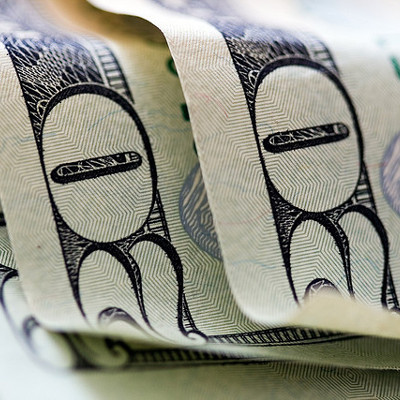
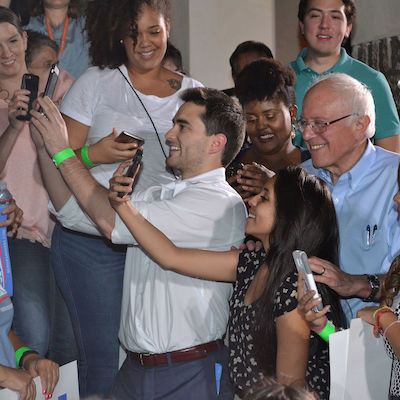
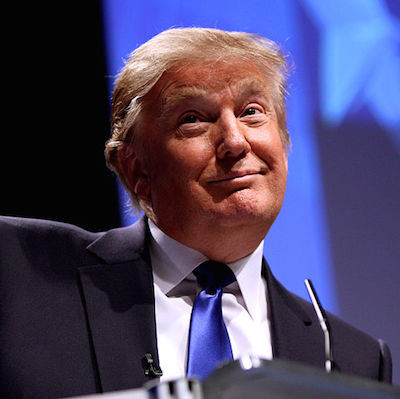
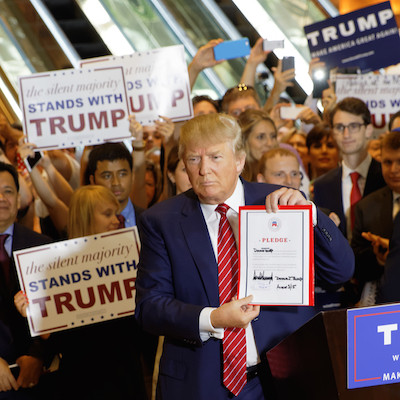
_399_399_90.jpg)
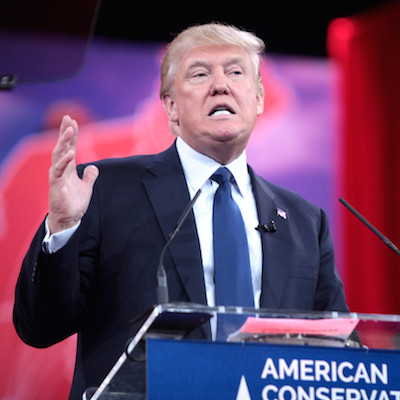
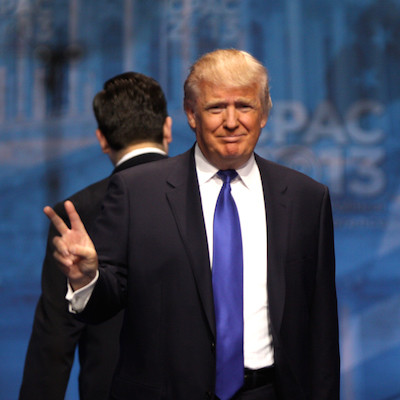







_80_80_90_c1.jpg)



